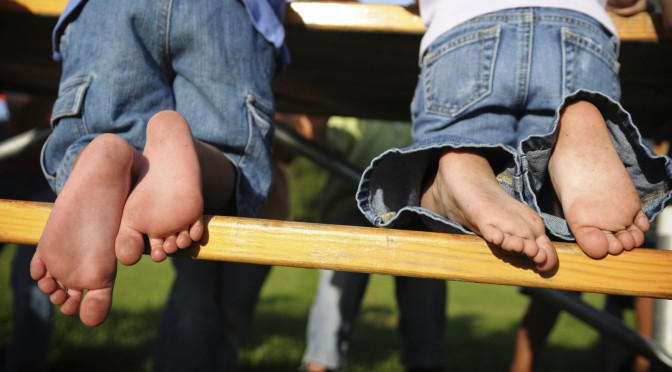It is important that one learn the different stages of child development before he/she can fully understand his/her child. According to Dr. Erik Erikson, a psychiatrist, there are 8 Phases of Development. The development stages are concerned with the emotional and social development of children, adolescents, and adults. We have summarized each phase and as a reference below you will find an outline of each phase, plus a description of what it entails.
Phase 1 – Trust vs Mistrust
This is actually the first phase of Dr. Erikson’s study. This takes place during the first 2 years of the infant’s life. It is important the infant feel loved and nurtured in this stage. The child will become a trusting person if he/she is treated right. Otherwise, he/she will have a hard time trusting those around him/her.
Phase 2 – Autonomy vs Shame
The second phase starts when a child is between two to four years old. Children who are treated well by their parents will show qualities of autonomy and pride. However, autonomy must not be confused with independence. Children who do not overcome the Autonomy vs Shame crisis will have bouts of shame or embarrassment. He/she may have a difficult time performing some tasks — a dance or song that is asked of him/her. He/she will feel that he/she will be unable to perform well. Hence, the feeling of shame arises.
Phase 3 – Initiative vs Guilt
This occurs during the “play age” or preschool years. The child discovers that cooperation is vital. The child also learns to improve his/her skills. Also, realizes how to be a good leader and a good follower. However, a child who has guilt running in his/her veins will be fearful. He/she will also lack imagination. Furthermore, the child will be dependent on his/her parents.
Phase 4 – Industry vs Inferiority
This stage happens during the junior years in high school of the child. The child who learns industry in this stage is sure to relate to his/her peers while abiding by the rules. The child will also learn the significance of teamwork. On the other hand, the child who is distrustful and shameful will, unfortunately, feel inferior to those around him/her.
Phase 5 – Identity vs Identity Diffusion
Adolescents experience this 5th psychosocial crisis. Adolescents, by this time, should be capable of identifying the type of person they truly are. In the later years of adolescence, the child will also recognize his/her sexual identity. He/she will not doubt what his/her gender is.
Phase 6 – Intimacy vs Isolation
This happens when young adults learn to love. Either the person makes a relationship worthy of long lasting friendship or one that can even lead to marriage.
Phase 7 – Generativity vs Self Absorption
The seventh stage occurs when the individual learns to work creatively and productively. This can also be seen at the office or at one’s home — during parenthood and marriage.
Phase 8 – Integrity vs Despair
Integrity is achieved by the individual if all of the previous seven crises were successfully settled. He/she can apply everything that he/she has learned from the previous seven stages of development. However, one will feel despair if most of the seven crises were not met satisfactorily.
